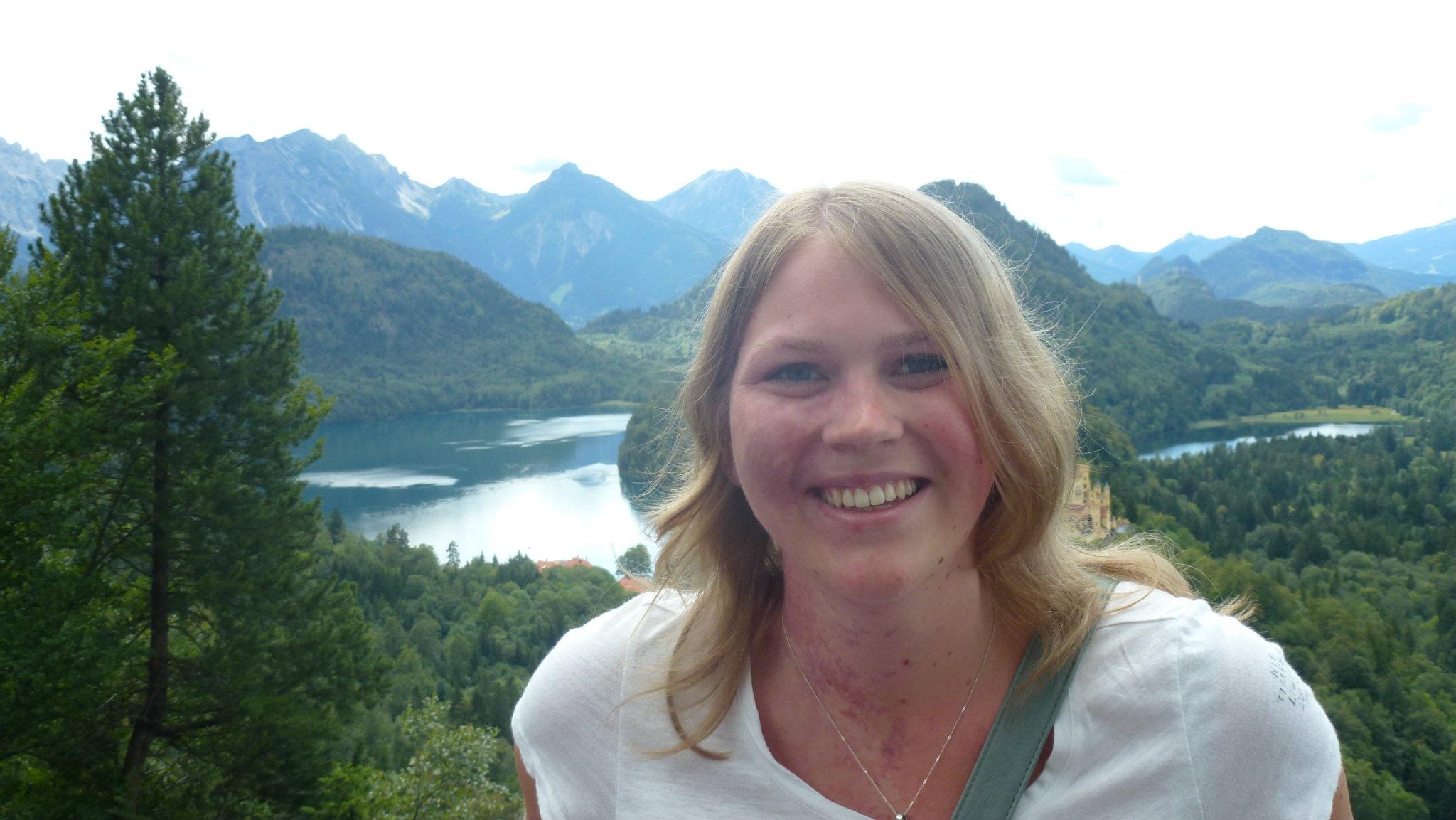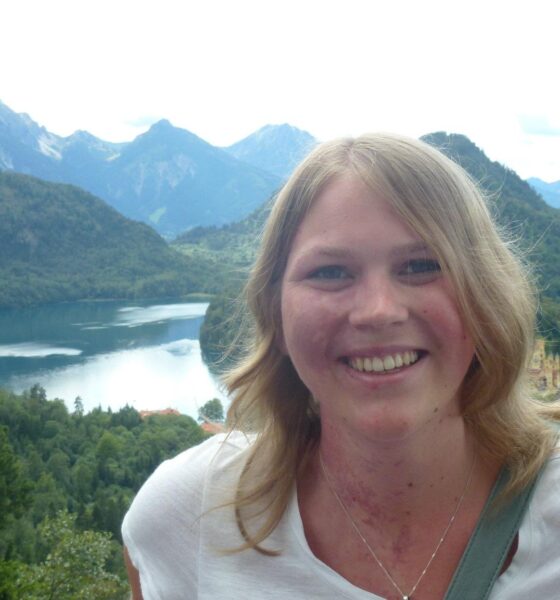

Economy
Future sustainability leaders: Alice Goodbrook
What will business look like in the future and who are our future leaders?
This is the penultimate instalment in our series speaking with a group of young people who are making waves in sustainability. All 12 are scholars on Forum for the Future’s renowned master’s course in leadership for sustainable development.
Ten years on from reading an article about climate change that sparked her interest in sustainability, Alice Goodbrook is ready to help business evolve. Here, she tells us about some of the key lessons she has picked up over the past year.
Tell us about your experience on the Forum for the Future master’s course. What have your placements involved?
With four placements across four sectors and no two lecturers the same, my experience of the course can certainly be described as varied! While the weeks we spend at Forum’s offices give us the opportunity to learn new ideas and question our own assumptions by being able to debate with world renowned sustainability leaders, the placements root this in the real world – putting our ideas into action. They also give us the opportunity to develop key skills from different reporting techniques, holding video conferences with multiple countries, to other practicalities such as working on the move.
At Delhaize (think Belgium’s equivalent of Sainsbury’s), I was developing sustainable packaging guidelines to be used across their stores in eight different countries.
At the Welsh government, I was lucky enough to be placed with the team working on the future generations bill (previously the sustainable development bill) which aims to put sustainability at the heart of the Welsh government’s decision-making. My project was to develop the draft implementation plan for the bill.
At the Technology Strategy Board (a non-departmental government organisation aimed at stimulating the economy through helping get new technology to market), I created a database of all the test and demonstration facilities worldwide around energy systems. I also had the opportunity to build relationships between them and the TSB by conducting site visits.
Finally at Actis, a private equity firm purely investing in the developing markets, I am developing a model to assess the impact of their real estate developments in relation to their core environmental, social and governance (ESG) priorities.
Where does your interest in sustainability come from?
When I was 14, my favourite chemistry teacher brought in an article he thought I would be interested in. It was from the Times. It showed the potential apocalyptic state the world would be if our climate continued to get warmer – my house was underwater. What followed was a discussion that has continued ever since. Why was no one doing anything about it? If we needed to decarbonise our energy system sooner rather than later, what was the delay? Why was the government not leading this action?
I strongly believe that my generation can be the ones to fix these problems, to stop talking and start doing and I want to help lead the way.
What is the best piece of advice you’ve been given during your course?
Don’t expect to know everything, know enough and have the appetite to learn whenever the opportunity arises.
What’s most important business lesson you’ve learnt?
Don’t expect everyone to understand sustainability – learn the language others use and if that fails find someone within the industry who can help translate!
What one idea you think could change the world for the better?
The internet of things – both terrifying and miraculous in equal measures.
What do you see of the future in terms of sustainability, business and the environment?
I see the future for sustainability as evolving to becoming the business as usual approach. Businesses will understand that talking about resource depletion and other sustainability issues is not just an environmental issue but a core part of their strategy. It is the only way to ensure that business is viable for the long-term.
Where will you be in 10 years’ time?
A decade has passed since I was handed the Times article that sparked my interest in energy and my fascination with its future remains. In 10 years’ time, I hope to be working within the sector, making strategic decisions which help the industry evolve to meet the many challenges the need for a carbon neutral future creates.
Further reading:
Future sustainability leaders: Adam Lewthwaite
Future sustainability leaders: Kate Beattie
Future sustainability leaders: Maia Tarling-Hunter
Future sustainability leaders: Ruth Shave
Future sustainability leaders: Angela Green
Future sustainability leaders: Andrew Adam
Future sustainability leaders: Zoe Draisey
Future sustainability leaders: Rebecca Trevalyan


 Environment12 months ago
Environment12 months agoAre Polymer Banknotes: an Eco-Friendly Trend or a Groundswell?

 Features11 months ago
Features11 months agoEco-Friendly Cryptocurrencies: Sustainable Investment Choices

 Features12 months ago
Features12 months agoEco-Friendly Crypto Traders Must Find the Right Exchange

 Energy11 months ago
Energy11 months agoThe Growing Role of Solar Panels in Ireland’s Energy Future




























